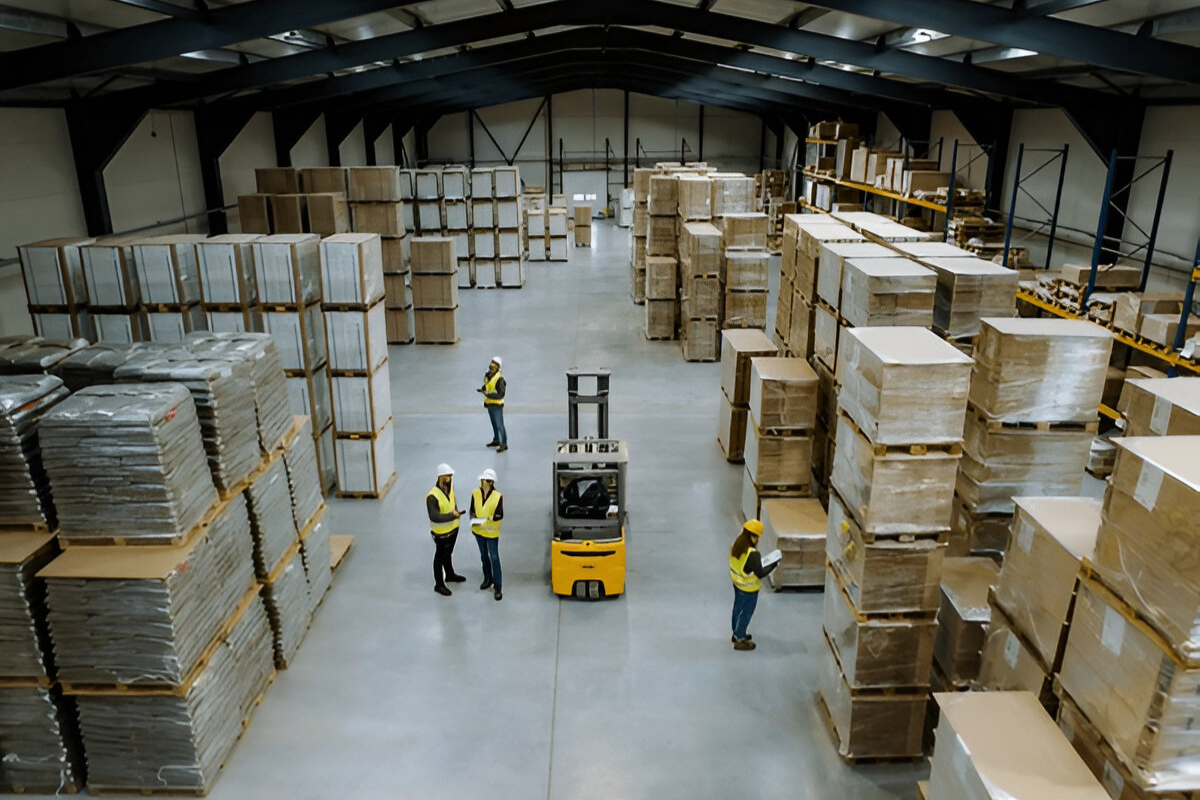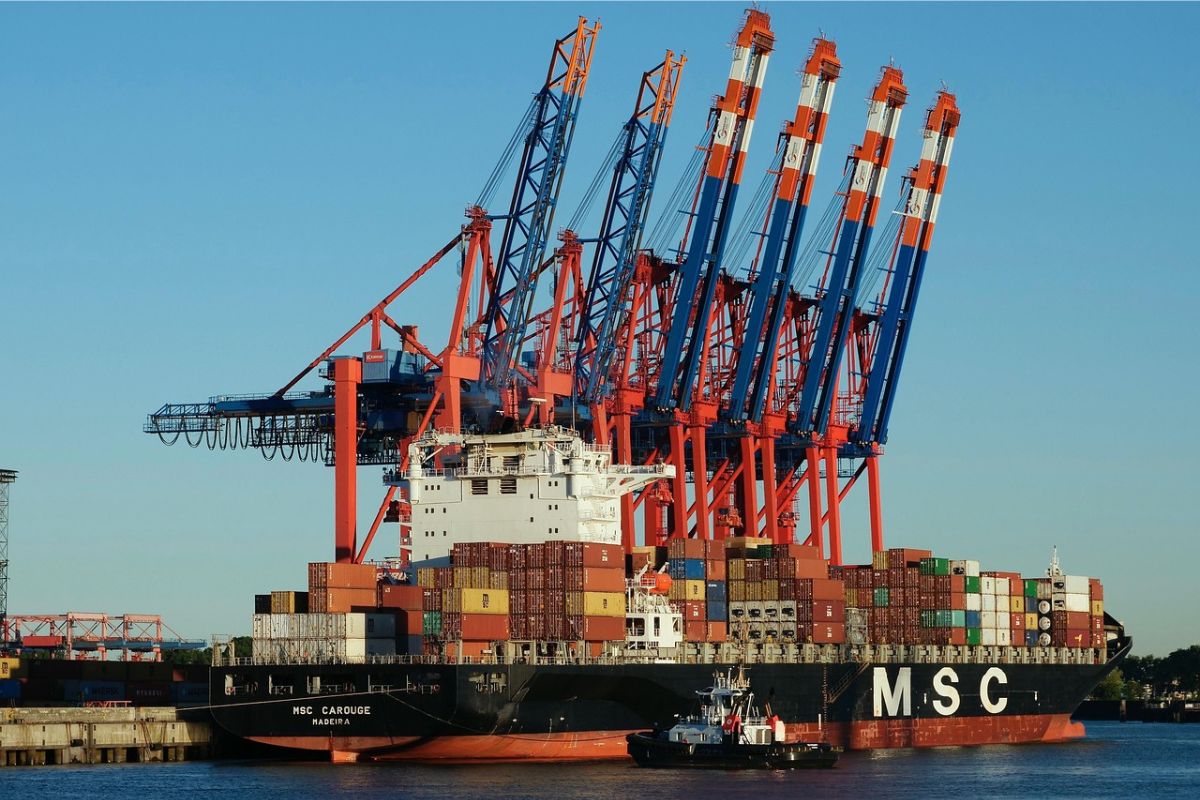Logistics management functions are the pillars of success for many industries and businesses. It consists of various critical activities and processes that ensure the smooth movement of goods from the manufacturer to the end consumer. Understanding these logistics management functions can enable any company to optimize its supply chain, cut unnecessary operational costs, and enhance customer satisfaction.
Each logistics management function has a vital role, from accurate inventory management to handling transportation costs, warehousing and storage, material handling, packaging, and timely and accurate order fulfillment. If done right, logistics management can provide a significant competitive edge and keep the supply chain agile.
So, let’s understand logistics management, its core functions, and how they can help businesses in their overall operations.
What is Logistics Management?
Logistics management is basically a part of the bigger supply chain management (SCM). The process entails planning, implementing, and controlling the movement and storage of goods from the point of origin to the finished product that hits the shelves in the market. Logistics management functions (LMF) ensure the right products reach the right place at the right time in the right condition.
Logistics management is critical for any business because it ensures smooth operations that reduce costs without sacrificing quality. This critical facet of business demands strategic planning and data-driven decisions for perfect execution. If done right, it can reduce additional expenses, balance all labor, shipping, and related costs, and meet the customer’s demand on point.
Core Functions of Logistics Management
There are eight primary functions of logistics management that are interconnected to form the backbone of any successful logistics operation. These functions ensure a company’s supply chain runs smoothly and efficiently.
Every industry relies on these core logistics management functions to deliver goods and products safely and efficiently to consumers, uphold payment and delivery terms, and maintain a competitive advantage in the market.
Let’s have a brief look at the core logistics management functions:
1. Order Processing Logistics
The first and most important function of logistics management is order processing. This function covers everything from taking orders to ensuring product availability in the inventory, scheduling delivery, and initiating shipment. It ensures order accuracy and on-time delivery.
2. Inventory Management Logistics
How can you complete an order if you don’t know what’s in your inventory? This is where inventory management logistics comes in, which tracks inventory levels to ensure your inventory is neither overstocked nor understocked. JIT strategies and modern inventory management software are the latest solution to keep the competitive edge.
3. Warehousing & Storage Logistics
Storage, movement, and management of goods when they are still in the warehouse come under this function. This keeps goods organized, accessible, and ready to dispatch as soon as an order arrives. Automated warehouse management systems (WMS) work great in our fast-paced operations and simplify this complicated task efficiently.
4. Transportation & Delivery Logistics
When we talk about logistics, the first thing that comes to mind is often transport, and rightfully so. This is the most visible and costly part of the supply chain management. It involves selecting carriers, scheduling shipments, and choosing the most optimal routes, all while maintaining cost.
5. Material Handling Logistics
Another critical aspect of the supply chain is selecting the right equipment and method for handling material. Even a minor slip can lead to costly mistakes. Safety, productivity, and product quality are all linked to this crucial step.
6. Packaging Logistics
The right packaging is essential for protecting goods during transit and storage. Moreover, regulatory compliance is also necessary when packaging certain products. This reduces product damage and shipping costs and saves businesses from costly regulatory penalties.
7. Information & Data Logistics
Logistics functions heavily rely on digital solutions for visibility and informed decision-making. All the data and information are available online, which demands integration of advanced logistics software and automation tools to reduce errors and improve transparency.
8. Outbound Logistics
When the goods go out of the warehouse, the journey ahead lies under outbound logistics. Everything in between dispatch and delivery comes under this function. This function directly affects customer satisfaction and business reputation.

Importance of Logistics Management Functions
Logistics management functions are not separate tasks but a series of steps for better business operations. They cover everything from transportation and storage to distribution until the goods reach consumers.
They ensure on-time delivery while managing costs and various logistical factors such as inventory levels and supplier performance. Here are some ways logistics management helps businesses in the current corporate market.
1. Cost Optimization
Proper logistics management reduces operational costs, including unnecessary transportation, labor, and storage.
2. Customer Satisfaction
With optimized logistics management, businesses can improve customer trust and loyalty, offering timely and accurate deliveries. Satisfied customers are more likely to stay in business and even recommend your business via word of mouth.
3. Supply Chain Visibility
Integrating digital tools and automated analytic software offers businesses real-time insights into supply chain management (SCM). They can track shipments and make proactive decisions based on those insights.
4. Scalability & Agility
Optimized logistics is the key to quick growth and seamless scalability. Logistics management allows companies to handle increased demand and adapt to market changes efficiently.
5. Competitive Edge
Every customer wants faster delivery, lower prices, and reliability. Proper logistics management offers businesses a competitive edge in the market by addressing these needs.
Integrating Logistics Management in Supply Chain Strategy
The primary target of logistics management functions is to move and store goods during the entire process from origin to consumption. However, they are an integral part of the broader supply chain strategy. Integrating Logistics management with supply chain ensures consistency from planning to execution for both short-term and long-term benefits.
Conclusion
Each logistics management function has a distinct and vital role in the supply chain management. They ensure the products reach consumers promptly and cost-effectively. It is essential to understand what they are, potential challenges, and how to integrate them into your supply chain strategy to effectively meet customer demands and maintain an efficient supply chain for your business.
These logistics management functions help businesses reduce costs, enhance effectiveness, and improve customer satisfaction for more responsive and resilient operations. Ultimately, these companies gain a competitive edge and sustainability in our current market. All you need is the right tools, strategy, and execution.







